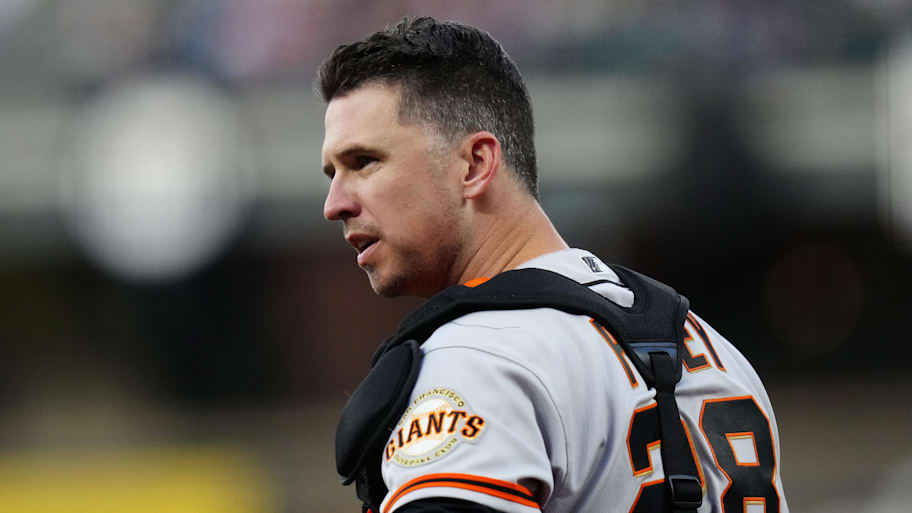
As the baseball world nears the All-Star break, MLB front offices and scouting departments are gearing up for their biggest day of the year.
No, not the trade deadline (though that looms large this time of year, too), but the 2025 MLB draft, which begins Sunday in Atlanta ahead of the All-Star festivities. The Washington Nationals own the No. 1 pick, and will make their selection in the aftermath of firing their GM Mike Rizzo and manager Dave Martinez earlier this month.
With the draft mere days away, it felt like the right time to look back at teams’ highlights (and lowlights) from the last 25 years’ worth of first-round picks. As drafts have lasted anywhere from 20 to 40 rounds during that span, every team has its fair share of diamonds in the rough. Conversely, each year’s first round produces many players most fans have never heard of. In deciding each club’s best and worst first-round picks, consideration was given to how high the team was picking, the player’s impact on the team that drafted him and alternative choices at that point in the draft, among other (admittedly subjective) factors.
Here’s a look back at first-round picks that paid off for each franchise—and one that teams would likely want the chance for a do-over.
Arizona Diamondbacks
Best pick: Corbin Carroll, No. 16 in 2019
Worst pick: Barret Loux, No. 6 in 2010
Max Scherzer (No. 11 in 2006) is the best player the Diamondbacks have drafted this century, but he was traded to the Tigers after making just 37 starts for Arizona. Carroll has blossomed into one of the best young stars in baseball, and helped lead the team to its second World Series as a rookie two years ago.
Loux was drafted one spot before Matt Harvey and seven spots ahead of Chris Sale. He never signed with the team after failing his physical, and never pitched in the big leagues. The Diamondbacks received a compensation pick for Loux the following year, and used it to take Archie Bradley with the No. 7 pick. The next two players selected? Francisco Lindor and Javier Báez.
Athletics
Best pick: Matt Chapman, No. 25 in 2014
Worst pick: Kyler Murray, No. 9 in 2018
It’s hard to think of a worse outcome than what the A’s got from picking Murray, who, at the time, had not yet ascended to becoming the starting quarterback at Oklahoma. After his Heisman Trophy-winning campaign, he opted not to report to spring training in 2019, and was eventually the No. 1 pick in that year’s NFL draft. The A’s didn’t even get a comp pick the following year.
Chapman was a great find at the end of the first round. In five seasons with the A’s, he won three Gold Gloves and compiled 22.5 WAR.
Atlanta Braves
Best pick: Jason Heyward, No. 14 in 2007
Worst pick: Kolby Allard, No. 14 in 2015
The Braves don’t have a huge history of hitting it big with their first round picks this century, but they did well on drafting Heyward, a local product who made the All-Star team in his rookie year and is now in his 16th season. Allard was a consensus top-100 prospect for three years before his eventual debut and vastly underperformed expectations. He owns a career 5.59 ERA to date, though the Braves were able to trade him for reliever Chris Martin, who pitched effectively for Atlanta for a few seasons.
Baltimore Orioles
Best pick: Manny Machado, No. 3 in 2010
Worst pick: Matt Hobgood, No. 5 in 2009
From disaster to glory in back-to-back years, the Hobgood selection particularly stings because Zack Wheeler went next to the Giants at No. 6, while Hobgood never made it to the big leagues. In Machado, though, Baltimore nabbed a future Hall of Famer who made four All-Star appearances with the O’s before his eventual trade to the Dodgers.
Boston Red Sox
Best pick: Jacoby Ellsbury, No. 23 in 2005
Worst pick: Trey Ball, No. 7 in 2013
The Red Sox have spent most of this century picking in the back half of the draft, so their misses don’t stand out as being quite as glaring. Ellsbury is the easy choice here as a key contributor to two World Series championships. Ball, tied for Boston’s second-highest first-round selection since 2000, topped out at Double A.
Chicago Cubs
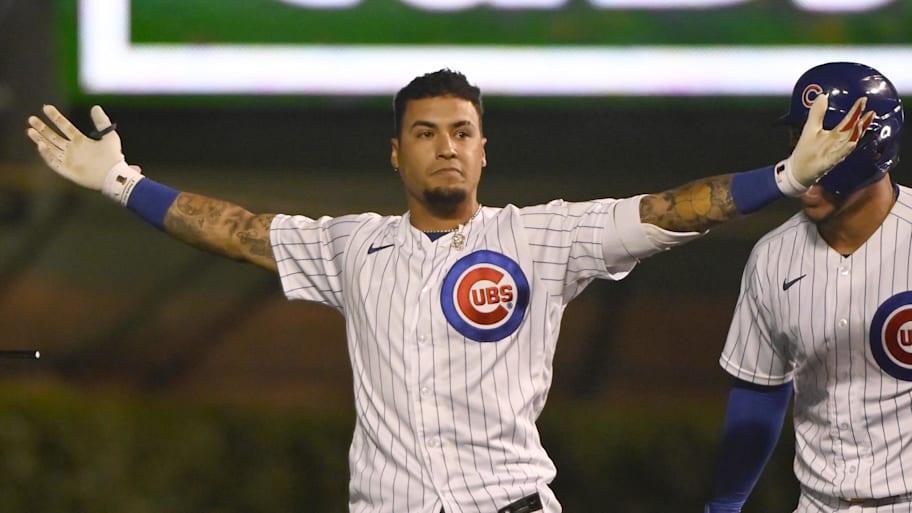
Best pick: Javier Báez, No. 9 in 2011
Worst pick: Josh Vitters, No. 3 in 2007
With all due respect to Kris Bryant, the No. 2 pick in 2013, Báez has the slight edge here. Both were key members of the 2016 World Series championship squad and both netted similar WAR totals with Chicago (28.0 for Bryant, 21.8 for Báez). What tips the scales in Báez’s favor is that, two months before he was set to hit free agency, the Cubs flipped him to the Mets for current face of the franchise Pete Crow-Armstrong, a pretty sweet outcome for the North Siders.
Vitters, once viewed as a potential franchise cornerstone, appeared in just 36 major league games.
Chicago White Sox
Best pick: Chris Sale, No. 13 in 2010
Worst pick: Andrew Vaughn, No. 3 in 2019
Sale made five All-Star teams and had five top-six Cy Young Award finishes in seven years with the White Sox, blossoming into one of the most dominant pitchers of his era. Vaughn, who put up -0.5 WAR for Chicago before getting traded to the Brewers this season, was selected two picks ahead of Riley Greene and three spots before CJ Abrams.
Cincinnati Reds
Best pick: Hunter Greene, No. 2 in 2017
Worst pick: Nick Senzel, No. 2 in 2016
Greene has shown flashes of dominance throughout his career, though has consistently dealt with injuries. He made his first All-Star team last year and owns a 2.74 ERA over the past two seasons. Taken No. 2 in what ended up being a weak 2016 first-round class, Senzel debuted for the Reds in 2019 and owns a career -3.1 WAR. He’s now in the Dodgers’ organization.
Cleveland Guardians
Best pick: Francisco Lindor, No. 8 in 2011
Worst pick: Jeremy Sowers, No. 6 in 2004
Lindor made four straight All-Star appearances for Cleveland and helped get the team to the 2016 World Series. Sowers was one of the organization’s highest picks this century. He had a strong rookie season, going 7–4 with a 3.57 ERA in 14 starts, but managed a 5.63 ERA for the rest of his career and last appeared in the big leagues in ‘09.
Colorado Rockies
Best pick: Troy Tulowitzki, No. 7 in 2005
Worst pick: Greg Reynolds, No. 2 in 2006
The Rockies could have hit it big by taking Long Beach State products in back-to-back drafts. The team nailed its selection of Tulowitzki, who developed into a five-time All-Star and led the team to the 2007 World Series. Colorado had a chance to take Tulowitzki’s college teammate, Evan Longoria, the following year, but instead went with Reynolds, a right-handed pitcher who put up -1.7 WAR and a 7.01 ERA for his career.
Detroit Tigers
Best pick: Justin Verlander, No. 2 in 2004
Worst pick: Kyle Sleeth, No. 3 in 2003
Verlander made his big-league debut just over a year after the Tigers took him with the No. 2 pick in the draft, and went on to become one of the greatest pitchers of all time. The year prior, Detroit wasn’t so effective, using the No. 3 pick on college pitcher Kyle Sleeth, who never made it past Double A.
Houston Astros
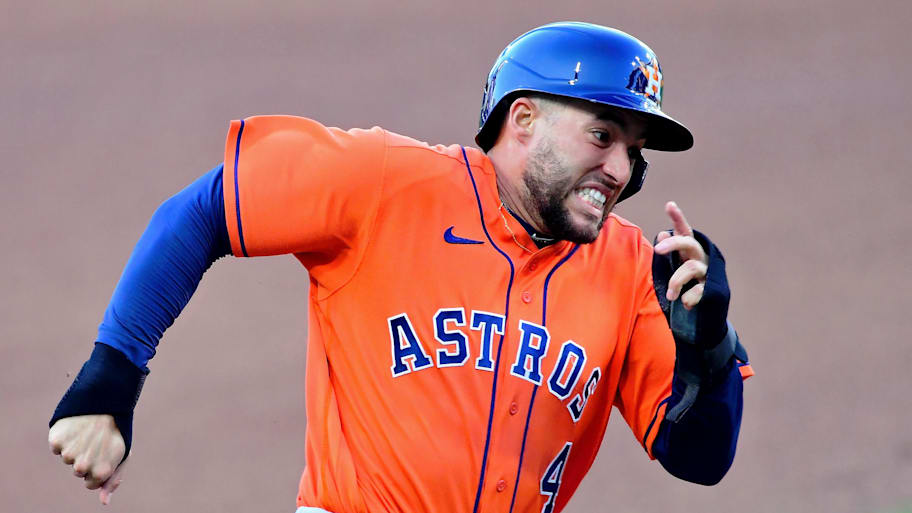
Best pick: George Springer, No. 11 in 2011
Worst pick: Mark Appel, No. 1 in 2013
Houston laid the foundation for its dominance over the past decade with a series of draft hits in the early 2010s. That run started with Springer, who gets the nod here in part thanks to his World Series MVP turn in 2017 but could have easily been replaced by Carlos Correa (No. 1 in ‘12), Alex Bregman (No. 2 in ‘15) or Kyle Tucker (No. 5 in ‘15).
The Astros could have been in an even better position to succeed had they found success with Appel, the top pitcher in the 2013 class who never panned out. He was picked one spot ahead of Kris Bryant, who went No. 2 to the Cubs.
Kansas City Royals
Best pick: Zack Greinke, No. 6 in 2002
Worst pick: Luke Hochevar, No. 1 in 2006
Greinke’s path to stardom took a bit longer than some might have hoped, but he broke out in his age-25 season in 2009 by winning the Cy Young Award, setting him on a path that seems all but certain to lead to the Hall of Fame. The Royals hoped to find similar success with Hochevar four years later. Though he pitched in parts of nine big-league seasons, he fell short of expectations, managing a 3.8 career WAR. The Rays took Longoria two picks later, while the Dodgers drafted Clayton Kershaw with the No. 7 pick that year.
Los Angeles Angels
Best pick: Mike Trout, No. 25 in 2009
Worst pick: Will Wilson, No. 15 in 2019
This one’s a no-brainer. Trout slid all the way to the end of the first round and became one of the greatest players of his generation, becoming one of 12 players to win three MVP awards. The Angels haven’t been able to replicate that success since. They traded Wilson to the Giants less than a year after drafting him just so they could get rid of Zach Cozart’s contract. Wilson made his big-league debut with the Guardians this year, and was taken one spot ahead of Corbin Carroll.
Los Angeles Dodgers
Best pick: Clayton Kershaw, No. 7 in 2006
Worst pick: Ethan Martin, No. 15 in 2008
Kershaw, who just notched his 3,000th career strikeout, will go down as one of the best pitchers of all time, and looks poised to spend his entire career in a Dodgers uniform. That’s as ideal an outcome as it gets for teams making their first-round selection. Kershaw’s draft also marks the only time this century the Dodgers have picked in the top 10. Their next-highest selection was Martin, so he gets the nod here. He made 17 career appearances, all with the Phillies after being traded in 2012 for Shane Victorino.
Miami Marlins
Best pick: Christian Yelich, No. 23 in 2010
Worst pick: Tyler Kolek, No. 2 in 2014
Yelich never made an All-Star team with Miami, but he was certainly a productive player, posting 17.6 WAR in five seasons with the Marlins before getting traded to Milwaukee. Kolek, meanwhile, battled injuries and never appeared in the major leagues. The next picks after him were Carlos Rodón at No. 3 and Kyle Schwarber at No. 4.
Milwaukee Brewers
Best pick: Ryan Braun, No. 5 in 2005
Worst pick: Corey Ray, No. 5 in 2016
Braun’s legacy is complicated by his failed test for performance-enhancing drugs—and his denial and subsequent admission in the test’s messy aftermath. Before staining his reputation, he was undoubtedly among the best players in the league during his prime. Ray was yet another miss in the 2016 draft’s first round, having appeared in just one major league game.
Minnesota Twins
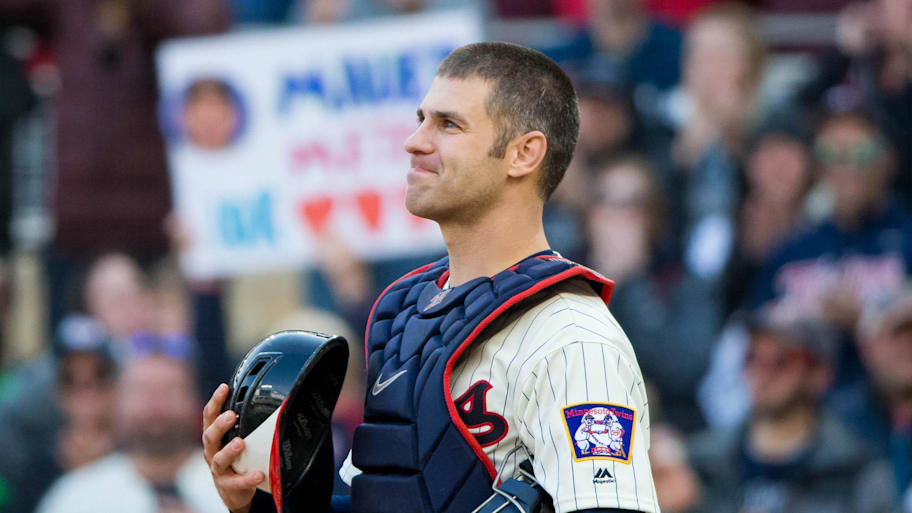
Best pick: Joe Mauer, No. 1 in 2001
Worst pick: Adam Johnson, No. 2 in 2000
There’s a world in which Mauer and Johnson become battery mates for the bulk of their careers and lead the Twins to greatness. Instead, Minnesota got just one half of that combination right, but Mauer was the ideal face of the franchise, winning three batting titles and an MVP award for his local team en route to the Hall of Fame. Johnson, meanwhile, made just nine big-league appearances.
New York Mets
Best pick: Matt Harvey, No. 7 in 2010
Worst pick: Phil Humber, No. 3 in 2004
Harvey had plenty of highs and lows in Queens, but his talent was undeniable, and he was integral in getting the Mets to their most recent World Series in 2015. Humber bounced around five different organizations across eight big-league seasons, peaking with his perfect game in 2012, but ultimately was a disappointment. He totaled just 1.0 WAR with a 5.31 ERA over his career.
New York Yankees
Best pick: Aaron Judge, No. 32 in 2013
Worst pick: C.J. Henry, No. 17 in 2005
Another franchise who routinely picks at the back end of the first round, the Yankees hit it big by taking Judge, now baseball’s most feared hitter, with their comp pick in 2013 (not a bad trade off for losing free agent Nick Swisher to Cleveland). Henry never made it past High A, eventually leaving baseball to pursue a college basketball career at Kansas.
Philadelphia Phillies
Best pick: Chase Utley, No. 15 in 2000
Worst pick: Mickey Moniak, No. 1 in 2016
Utley became a franchise cornerstone during his highly successful career that could very well earn him a spot in Cooperstown. He made six All-Star appearances with the Phillies and helped bring home the 2008 World Series title. Moniak is on his third organization and owns a career 1.0 WAR.
Pittsburgh Pirates
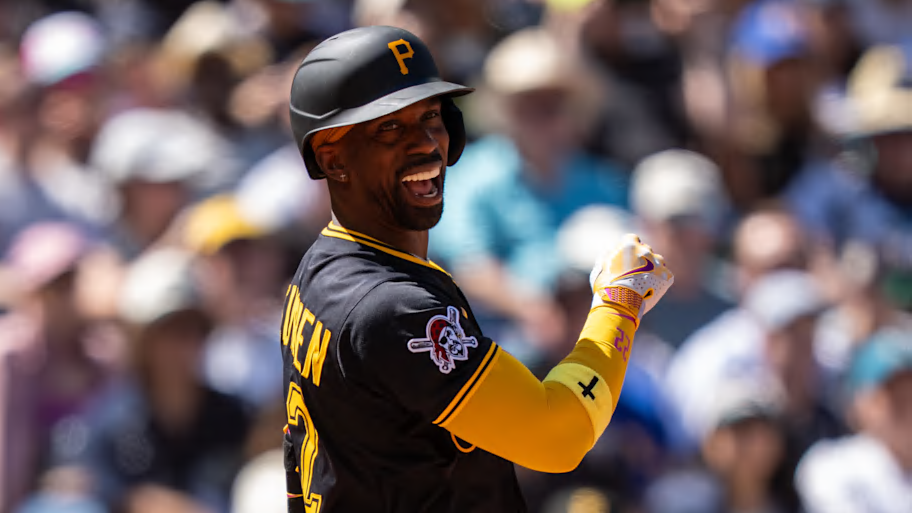
Best pick: Andrew McCutchen, No. 11 in 2005
Worst pick: Bryan Bullington, No. 1 in 2002
With respect to two standout No. 1 overall picks in Gerrit Cole and Paul Skenes, McCutchen earns the distinction here. He’s currently in his 17th big-league season, 12 of which have been in Pittsburgh, and has five All-Star nods and an MVP on his résumé. Bullington made a total of 10 big-league starts and was taken ahead of B.J. Upton, Zack Greinke and Prince Fielder.
San Diego Padres
Best pick: Jackson Merrill, No. 27 in 2021
Worst pick: Matt Bush, No. 1 in 2004
The Padres have a strong track record of drafting players in the first round who go on to star for other organizations—Max Fried, Trea Turner, MacKenzie Gore and CJ Abrams all fit this description. Merrill looks like a budding star after making the All-Star team as a rookie in 2024. San Diego has had several high-profile misses this century, but Bush is the easy choice after his numerous off-field legal issues led to him being designated for assignment. He eventually reached the majors at age 30 as a relief pitcher for the Rangers.
San Francisco Giants
Best pick: Buster Posey, No. 5 in 2008
Worst pick: Joey Bart, No. 2 in 2018
The Giants became three-time World Series champions in the 2010s thanks to draft successes like Matt Cain (No. 25 in 2002), Tim Lincecum (No. 10 in ‘06) and Madison Bumgarner (No. 10 in ‘07). But it’s Posey, the franchise catcher and now the organization’s president of baseball operations, who gets the nod here. San Francisco tried to find another backstop cornerstone in Bart, who, now with the Pirates, has so far been unable to live up to expectations.
Seattle Mariners
Best pick: Logan Gilbert, No. 14 in 2018
Worst pick: Danny Hultzen, No. 2 in 2011
Seattle nailed it in taking Gilbert in 2018, then struck gold again the following year by selecting George Kirby with the No. 20 pick. The Mariners have had plenty of misfires in the first round, but Hultzen—taken ahead of players like Trevor Bauer, Anthony Rendon, Lindor, Báez and Springer—stands out as the most glaring.
St. Louis Cardinals
Best pick: Kolten Wong, No. 22 in 2011
Worst pick: Delvin Pérez, No. 23 in 2016
The Cardinals have not picked higher than No. 13 in any draft this century, the result of consistently fielding competitive squads. Wong enjoyed an 11-year career that netted 22.9 WAR and two Gold Gloves. Pérez was viewed by many to be among the top prospects in the 2016 class, but his stock fell shortly before the draft once reports emerged that he failed a test for PEDs. St. Louis took him in the first round anyway, and he never made it past Triple A.
Tampa Bay Rays
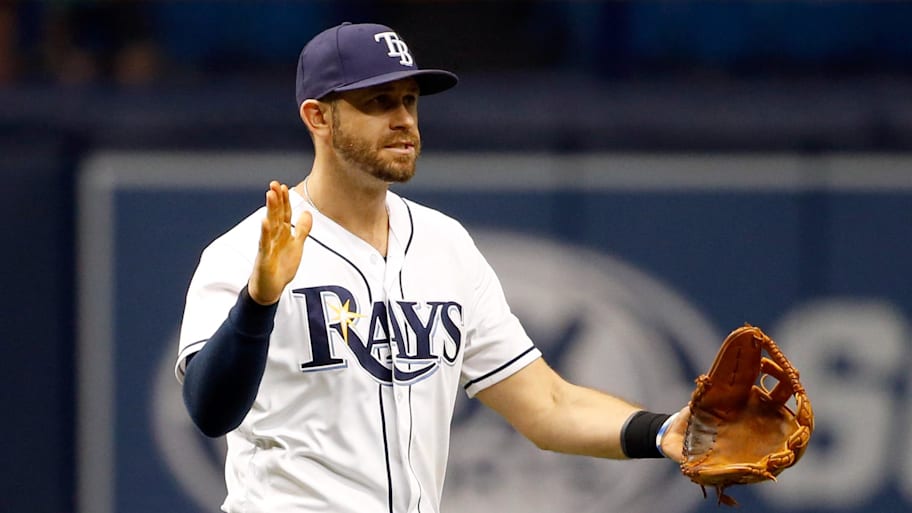
Best pick: Evan Longoria, No. 3 in 2006
Worst pick: Tim Beckham, No. 1 in 2008
Longoria gets the stiffest competition from David Price, the No. 1 pick in 2007, but beats him out by spending the bulk of his career in Tampa Bay. The Rays took Beckham with the top pick in ‘08 over eventual All-Stars Pedro Álvarez (No. 2), Eric Hosmer (No. 3) and Buster Posey (No. 5).
Texas Rangers
Best pick: Mark Teixeira, No. 5 in 2001
Worst pick: Dillon Tate, No. 4 in 2015
Teixeira did most of his damage after being traded in 2007, but he was a star for the Rangers, winning two Gold Gloves and two Silver Sluggers before his eventual trade to the Braves. That deal netted the organization a package of players that included Elvis Andrus and Neftalí Felix, two cornerstones of the franchise’s back-to-back AL championship squads in 2010 and ‘11. Tate never developed into a reliable pitcher Texas hoped he would become, and was chosen one spot ahead of Kyle Tucker.
Toronto Blue Jays
Best pick: Marcus Stroman, No. 22 in 2012
Worst pick: Austin Martin, No. 5 in 2020
Stroman turned in a top-10 finish in Cy Young Award voting in 2017 and was an All-Star in ‘19. Martin, Toronto’s highest draft pick this century, has amassed -1.0 WAR for his career and was eventually traded by the Blue Jays as part of a package for José Berríos. The other player Toronto sent away in that deal? Simeon Woods Richardson, whom the Blue Jays originally acquired when they traded away Stroman. Isn’t it great when things come full circle?
Washington Nationals
Best pick: Stephen Strasburg, No. 1 in 2009
Worst pick: Clint Everts, No. 5 in 2002
This comes down to Strasburg vs. Bryce Harper, the No. 1 pick in 2010. While Harper’s had the better career overall, Strasburg is the pick because he spent his entire career in Washington and was the MVP of the franchise’s lone World Series title in 2019. Injuries cut his time in baseball short, and Harper is likely bound for the Hall of Fame, but Strasburg at least reached the sport’s mountaintop before his playing days came to a premature end.
More MLB on Sports Illustrated
This article was originally published on www.si.com as Every MLB Team’s Best and Worst First-Round Draft Pick Since 2000.







